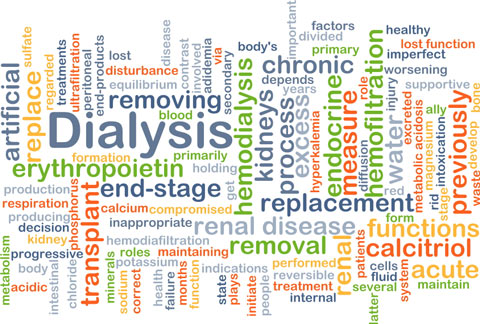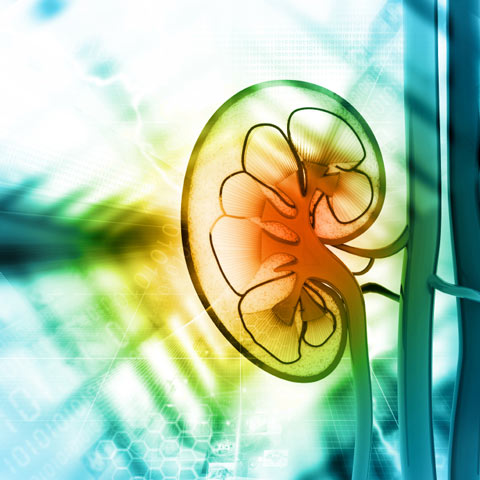Alpha Lipoic Acid Help for Advanced and Chronic Kidney Disease

Clinical studies suggest that alpha lipoic acid may help prevent and treat kidney disease. Not only can alpha lipoic acid prevent kidney cell damage caused by toxins or kidney disease itself, it also protects other organs from the effects of the condition: (iv.143)
- Atherosclerosis in the kidney's blood vessels causes renal failure. In clinical studies, alpha lipoic acid has been shown to reduce the risks of atherosclerosis. (iv.33, 51, 89)
- Research suggests alpha lipoic acid's anti-inflammatory and antioxidant properties could prevent damage in kidneys caused by angiotensin II. Alpha lipoic acid suppressed inflammatory proteins while stimulating levels of natural antioxidants in rats that express chronic levels of this hormone. (iv.102, 140)
- Prevents chemotherapy-induced kidney damage. (iv.13)
- Help reduce risk of heart disease in advanced kidney disease. (iv.108)
- Could reduce calcification and cell damage in chronic kidney disease. (iv.141)
- May help prevent free radical damage and counteract suppressed antioxidant levels in the brain caused by toxic cyanate and cyanide levels in patients with chronic kidney failure. (iv.142)
Clinical Evidence of Alpha Lipoic Acid Benefits
| Study Details | Alpha Lipoic Acid Form/Dosage and/or Drug Combination |
|---|---|
| Randomized, controlled clinical trial. (iv.143) | 600 mg/day of oral alpha lipoic acid along with regular blood pressure and diabetes medications (including insulin) for 18 months. (iv.143) |
| Patients | TAKE AWAY POINT |
|
84 adult patients with type 1 or type 2 diabetes: (iv.143)
|
Alpha lipoic acid could help prevent the development or progression of kidney disease (diabetic nephropathy) in patients with diabetes. (iv.143) |
| Outcomes | |

Also known as proteinuria, albuminuria is a condition of high protein levels in urine. Kidney disease is a known cause of albuminuria. Thrombomodulin is a protein found on the membranes of cells that line blood vessels (endothelial cells). It's also found in the blood. (iv.33, 144) On the cell surface thrombomodulin acts as an anticoagulant and anti-inflammatory molecule. The amount of thrombomodulin shed by endothelial cells in the blood is often measured as plasma or soluble thrombomodulin levels. Normal levels can differ depending on race, gender, and even stage of life. (iv.144) However, high levels of thrombomodulin in the blood are a sign of dysfunctional or injured endothelial cells caused by inflammation and free radicals. It's an indicator of disease severity, duration, and progression in diabetes, cirrhosis of the liver, atherosclerosis, diabetic kidney disease and retinopathy, and even multiple sclerosis. The reduced levels of thrombomodulin found in patients who took alpha lipoic acid suggest that alpha lipoic acid can help protect against the cell damage caused by diabetes. (iv.143-144) |
|
| Study Details | Alpha Lipoic Acid Form/Dosage and/or Drug Combination |
| Randomized, double-blinded, placebo-controlled clinical trial. (iv.108) | 600 mg/day of oral alpha lipoic acid for 8 weeks. (iv.108) |
| Patients | TAKE AWAY POINT |
|
63 male and female adult patients with end-stage renal disease: (iv.108)
|
Alpha lipoic acid could help prevent the development of heart disease in patients with advanced kidney disease. (iv.108) |
| Outcomes | |
HsCRP is an inflammatory risk factor for cardiovascular disease. (iv.108) |
|
Recommended Dosage
Integrative experts suggest doses of 600-1200 mg/day of alpha lipoic acid could help prevent diabetic complications such as kidney disease. Divide dosages evenly and take the divided doses 3 times a day. (iv.70)


